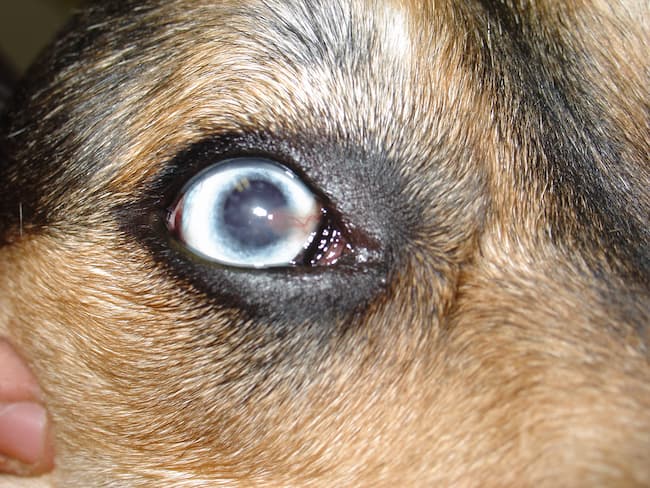If you are considering adding a German shepherd to your family, it is important that you are aware of the German Shepherd genetic health problems that this breed can suffer from. German shepherds are prone to a number of genetic diseases, which can be costly and heartbreaking for pet owners.

In this article, we will discuss some of the most common German Shepherd genetic problems seen in German shepherds. We will also provide tips on how to reduce the risk of your dog developing these diseases. If you want your German shepherd to live a long and healthy life, it is important that you learn about German Shepherd genetic diseases.
German Shepherd Genetic Problems
German Shepherds are large dogs with powerful physiques. While they are known for their intelligence and loyalty, they can also be prone to several genetic health issues. Here are some of the common German Shepherd genetic problems that you should be aware of:
Hip Dysplasia

Hip Dysplasia is one of the most common health problems seen in German Shepherds. Hip dysplasia occurs when the hip joint does not properly fit together, causing instability and pain. This condition can be painful and can lead to arthritis. If you are considering a German Shepherd, make sure to check the hip scores of any potential puppy you are looking at.
Elbow Dysplasia
Another common issue seen in German Shepherds is Elbow Dysplasia. Elbow Dysplasia means that the elbow joint does not develop properly. This can lead to a variety of issues, including lameness, pain, and even arthritis. The symptoms of elbow dysplasia can vary from mild to severe, so it is important to get your German Shepherd checked by a veterinarian if you suspect they may be suffering from this condition.
Degenerative Myelopathy

Degenerative Myelopathy is a progressive and debilitating disease of the spinal cord. This condition causes progressive loss of coordination and motor skills in the back legs. Unfortunately, there is no cure for this condition, but veterinarians can help to manage and slow its progression.
Check out this breed fo GSD: German Shepherd Chow Mix
Autoimmune Disease
This is one of the most serious German Shepherd genetic problems. Autoimmune diseases are caused when the immune system attacks healthy cells, causing a wide range of clinical signs and symptoms. These diseases can be difficult to diagnose and treat, so it is important to visit your veterinarian if you think your dog may be suffering from an autoimmune disorder.
Eye Problems

German Shepherds are also prone to a number of eye problems, including cataracts and Progressive Retinal Atrophy (PRA). PRA is an inherited disease that causes the gradual deterioration of the retina, leading to complete blindness. Although there is no cure for PRA, early detection can help to slow its progression. German Shepherd ear infection is also a problem to take care of.
Skin Problems
German Shepherds are also prone to skin conditions such as allergies, skin infections, and mange. Allergies can cause itching, redness, and hair loss, while skin infections can lead to rashes, sores, and scabs. Mange is caused by mites and can result in hair loss, redness, and itching. It is important to keep your German Shepherd’s skin clean and healthy to help prevent these conditions from occurring.
Bloat
Bloat is a life-threatening condition that can affect both large and small dogs. This condition occurs when the stomach becomes bloated with gas or fluid, causing it to twist on itself and cut off the blood supply. It is important to be aware of the signs of bloat, such as restlessness, drooling, vomiting, and a swollen abdomen, so that you can get your German Shepherd to a veterinarian for treatment as soon as possible.
By knowing the common German Shepherd genetic problems, you can take steps to reduce their risk of developing these issues. This includes making sure that any potential puppy has been tested for hip and elbow dysplasia, providing regular eye exams, keeping their skin clean and healthy, and watching for signs of bloat. With proper care and attention, you can help your German Shepherd live a long and healthy life.
Conclusion
That was all about the German Shepherd genetic problems. While the breed is prone to several issues, there are steps you can take to reduce their risk. With proper care, your German Shepherd can live a long and healthy life. If you have any doubts or questions, feel free to reach out to our German shepherdss team. Thank you!

